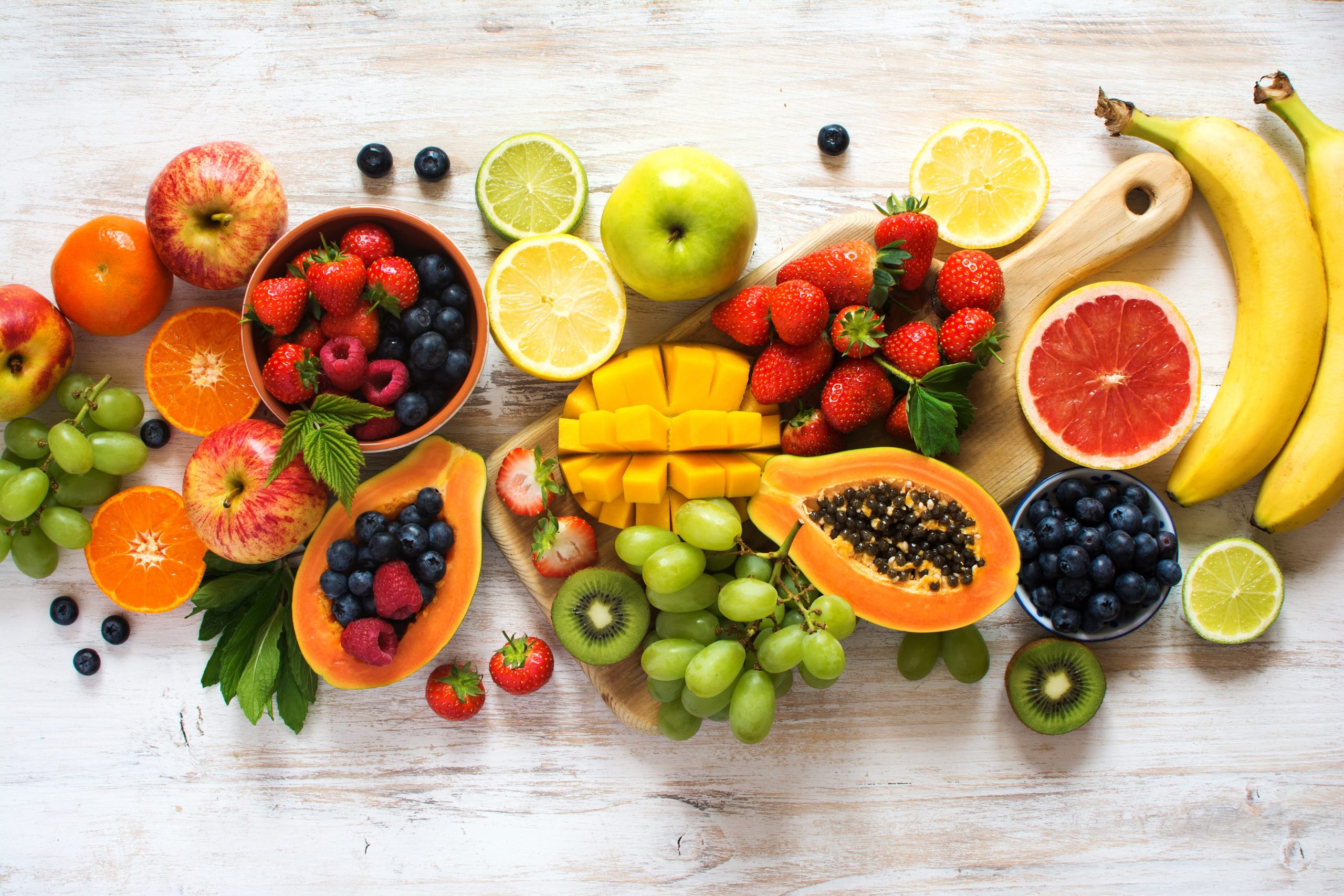Best Fruits to Improve Your Health
Before embarking on a new diet or regime, or diving into superfoods and supplements, ensure you’ve got the lowest hanging fruit covered, first. They’re not only relatively straightforward to achieve, but also key to a strong, long-term foundation of health. Try our top 6 low-hanging fruits for long term health below.
Tip 1: Enjoy more plants.
Research shows that enjoying 30+ unique plant-derived foods each week supports a healthy, diverse and resilient gut microbiome, which is integral to many aspects of health beyond digestion!
Enjoying a variety of different plants – including fruits, vegetables, legumes, nuts, seeds, herbs and spices – to reach this target is a fantastic, inexpensive way to support our health.
Try:
- Enjoying a serving of fruit with breakfast, and your morning or afternoon snack.
- Filling half your plate with vegetables at lunch and dinner. If you’re eating out, order a side of salad or vegetables to enjoy alongside your main meal.
- Adding tinned legumes, such as lentils and chickpeas, to mince-based dishes, lunch-time salads and veggie sides.
- Embracing meat-free meals once or twice per week.
- Using a variety of seeds and nuts, in sweet and savoury dishes.
- Using plenty of fresh herbs, spices and aromatics like garlic, ginger, chilli, citrus fruits and pepper, for flavour.
Tip 2: Hydrate.
Staying adequately hydrated each and every day supports multiple essential processes within the body. Although individual requirements vary, men and women (who are not pregnant or breastfeeding) generally require 35 to 45 mL of fluid per kilogram of body weight, daily. Naturally, requirements are higher for those of us who are highly active and/or living in warmer climates, to replace additional fluids lost through sweat.
If you’re struggling to meet your fluid requirements, refer to our how-to guide to hydration for some tips.
Tip 3: Embrace the kitchen.
Preparing nourishing meals doesn’t need to be complicated, but does require at least some time planning, and prepping in the kitchen. Health benefits aside, your budget will also benefit from less eating out and ordering in!
Firstly, ensure you’re well-stocked with everyday essentials to support healthy eating. If cooking is outside your comfort zone, start small by trialling some of the (many!) ready- and semi ready-made options available, or look for some inspiration (and instruction) in cookbooks or with an Internet search. Meanwhile, YouTube is an amazing resource for learning different healthy cooking techniques that might be unfamiliar, like stir-frying, sautéing and blanching.
Tip 4: Keep caffeine in check.
As well as coffee, black and green teas, and dark chocolate, also contain caffeine (albeit in smaller amounts). It’s important to factor in all caffeine sources to avoid overdoing it, as excess caffeine consumption is associated with adverse health effects including anxiety, poor sleep and digestive upset, among others.
400 mg caffeine daily for adults, with no more than 200mg per serving. If you’re pregnant, trying to conceive, or breast feeding, a maximum of 200mg daily is recommended. If you’re not sure what 200mg of caffeine looks like, refer to Amanda’s visual guide here.
Try:
- Ordering a decaf coffee, or chai or matcha latte, if you’d like to explore some lower-caffeine alternatives but love the ritual of visiting your local coffee shop.
- Swapping your afternoon coffee or caffeinated soft drink for a herbal tea, sugar-free kombucha or sparkling water.
- Swapping out half your usual serving of dark chocolate for some fresh fruit and nuts.
Tip 5: Moderate alcohol consumption.
Australian dietary guidelines recommend that adults (who are not pregnant or breastfeeding) consume a maximum of 10 standard drinks per week, with no more than four standard drinks consumed on any one day. We recommend becoming familiar with standard drink sizes – they might be smaller than you expect!
Nonetheless, the less we drink, the lower our health risks, overall.
Try:
- Limiting alcohol to weekends (or non-working days).
- Embracing delicious, refreshing non-alcoholic alternatives like infused sparkling waters, sugar-free kombuchas, and botanical tisanes.
- Alternating every second alcoholic beverage with a non-alcoholic option.
Tip 6: Support your sleep.
Getting enough quality, restorative sleep each night is fundamental to our energy levels and overall sense of wellbeing, but also affects the way we eat. When we’re tired, cravings for discretionary foods – high in sugar, salt and/or saturated fat – increase, and ghrelin (the ‘hunger hormone’) and leptin (the ‘fullness hormone’) function less optimally. Alongside a consistent sleep schedule and sleep hygiene, dietary choices can also influence our sleep; find out how to eat for a better night’s sleep, here.
For expert dietary support to support your personal health and wellbeing journey, book your first appointment with one of our wonderful Accredited Practising Dietitians today.
Written by Caitlin Branch, Student Nutritionist, and Amanda Smith, Accredited Practising Dietitian.



